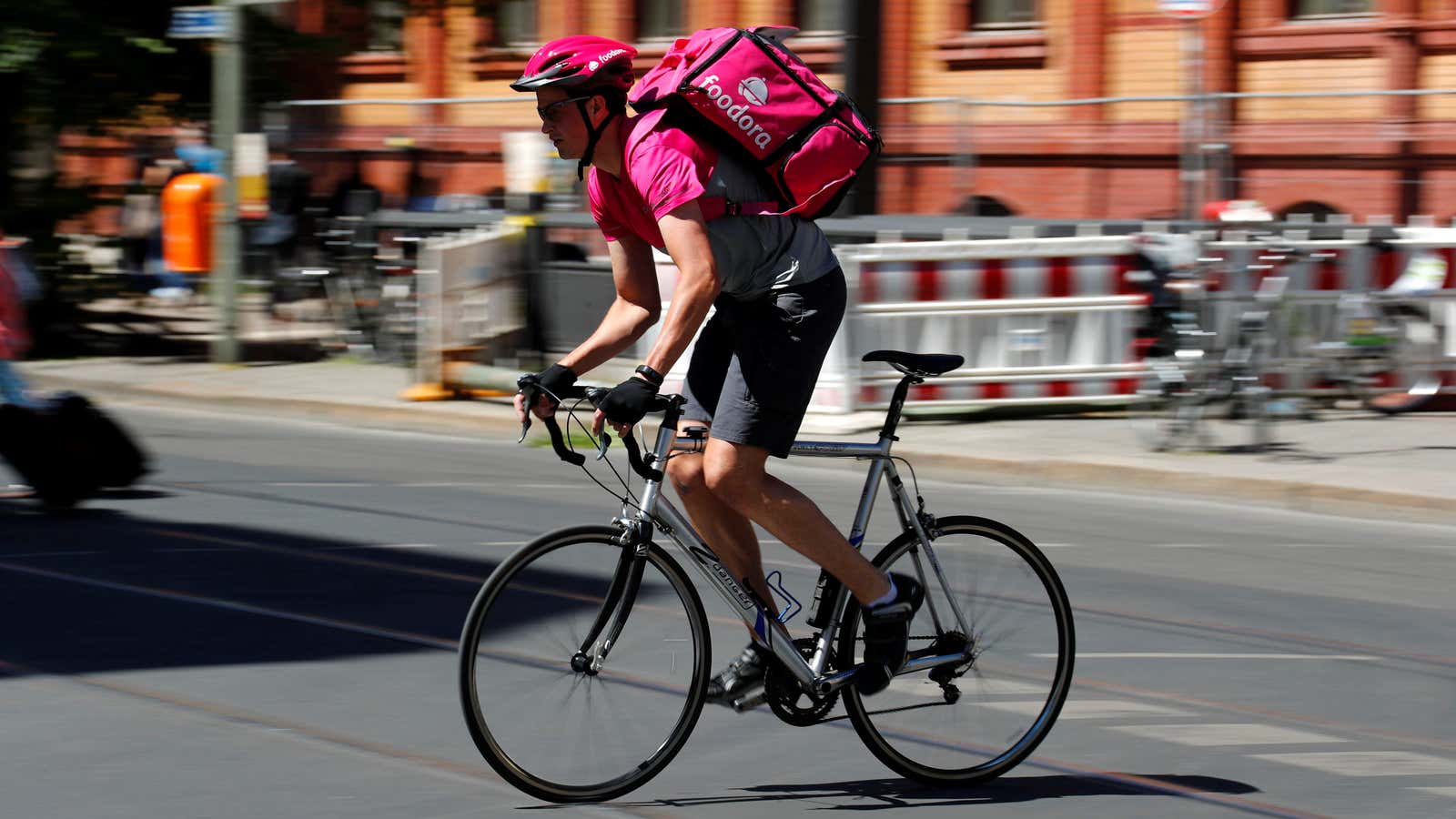Consolidation has come to the food delivery industry.
London-based Just Eat said today (July 29) that it had agreed on terms of a “possible combination” with Dutch rival Takeaway.com. The deal, if completed, would create one of the world’s largest food delivery platforms, with a combined €7.3 billion ($8.1 billion) worth of orders in 2018.
Takeaway.com considers itself the “leading online food delivery marketplace in Continental Europe.” The company’s biggest markets by sales are the Netherlands and Germany since it acquired competitor Delivery Hero’s Germany operations for €930 million in December 2018. Takeaway.com also operates in Belgium, Austria, Poland, and Israel, and has a small business in Switzerland through its June 2018 purchase of competitor Foodarena. The company said it had 14.1 million active consumers as of Dec. 31, 2018.
Just Eat’s biggest markets by sales are the UK and other countries in western Europe as well as Brazil and Canada, making it a nice complement to Takeaway.com. Just Eat—which also owns brands Skip the Dishes, iFood, and MenuLog—said it had 26 million active customers across 13 countries as of the end of 2018.
The news that Just Eat and Takeaway may merge comes not long after Amazon took a $575 million stake in London-based food delivery startup Deliveroo and said it would close its own restaurant delivery business. That investment is being scrutinized by the UK’s competition regulator, which has ordered Amazon to pause any efforts to integrate its operations with Deliveroo.
Meanwhile, the Indian daily newspaper Business Standard reported July 29 that Amazon is in talks to buy the India operations of Uber Eats, Uber’s food delivery service. A source familiar with the matter at Uber disputed the report, and Amazon declined to comment. India’s dominant food delivery platform is Bengaluru-based Swiggy, which had nearly 50% market share as of December 2018.
This flurry of consolidation is overdue in the hyper-crowded food delivery space. It’s hard to even count all the delivery startups that have popped up in recent years as takeout dining has gained on eating in restaurants. There are the big names—like Uber Eats, DoorDash, and Postmates in the US—plus a host of smaller companies vying for a piece of the market. A 2018 report (pdf) from venture-capital research firm PitchBook counted at least two dozen companies in the restaurant ordering and delivery business—and that doesn’t even include grocery delivery!—backed by a combined $5.8 billion in funding.
The trouble is that many of these companies, flush with venture capital and bent on expansion, don’t make any money. Food delivery is a tough business as restaurants have famously thin margins, meaning there often isn’t much left for a third-party delivery company to take a cut from. The cost of food delivery also isn’t cheap. Many startups rely on consumer subsidies, funded by their investors, to make the service appear more affordable than it actually is.
Industry veteran Grubhub recently lost its spot as the top food delivery platform in the US to DoorDash, a startup backed by $2 billion in financing. But Grubhub is reliably profitable, with $7 million in net income on $324 million in sales in the first quarter, while DoorDash has yet to turn a profit.
